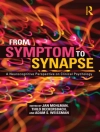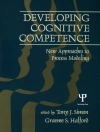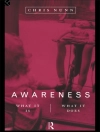Quickly acquire the knowledge and skills you need to utilize the varied assessments frequently used in evaluating autism spectrum disorders
With both the detection and awareness of autism spectrum disorders (ASD) on the rise, there is an urgent need for an increasing number of professionals to not only learn about the nature and course of the various autism spectrum disorders, but also to know how to identify, assess, and diagnose the presence of these disorders. Essentials of Autism Spectrum Disorders Evaluation and Assessment addresses the main domains of assessment, defines the purpose of the assessment, suggests test instruments, and discusses the unique clinical applications of each instrument to the diagnosis of ASD.
Like all the volumes in the Essentials of Psychological Assessment series, each concise chapter features numerous callout boxes highlighting key concepts, bulleted points, and extensive illustrative material, as well as test questions that help you gauge and reinforce your grasp of the information covered.
Providing an in-depth look at ASD evaluation and assessment, this straightforward book includes samples of integrated reports from comprehensive model diagnostic evaluations and prepares clinical and school psychologists, as well as speech and language pathologists, to effectively evaluate and assess ASD.
* Complete coverage of the identification andassessment of autism spectrum disorders
* Expert advice on avoiding common pitfalls
* Conveniently formatted for rapid reference
Other titles in the Essentials of Psychological Assessment series:
* Essentials of Dyslexia Assessment and Intervention
* Essentials of Assessment Report Writing
* Essentials of School Neuropsychological Assessment
* Essentials of Evidence-Based Academic Interventions
* Essentials of Specific Learning Disability Identification
* Essentials of Processing Assessment
* Essentials of Executive Function Assessment
* Essentials of Cross-Battery Assessment, Second Edition
Tabla de materias
Series Preface xiii
Acknowledgments xv
One Overview 1
Diagnostic Criteria 2
Asperger Syndrome 3
Pervasive Developmental Disorder, Not Otherwise Specified 5
Rett’s Disorder and Childhood Disintegrative Disorder 8
DSM-5 9
Two Assessment of Level of Functioning 13
Selecting Instruments 14
Developmental and Early Cognitive Measures 16
Cognitive Assessments 19
Neuropsychological Assessments 28
Qualitative Observations 31
Summary 33
Test Yourself 36
Answers 37
Three Speech, Language, and Communication Assessment
39
Receptive Language 42
Expressive Language 44
Pragmatic Language/Social Communication 47
Stages of Language Development 48
Formulation of Findings 51
Summary 55
Test Yourself 57
Answers 58
Four Assessment of Behavioral Profiles 59
Standardized Assessments of Behavior 60
Functional Behavior Assessment 61
Assessment of Adaptive Behavior 64
Summary 70
Test Yourself 72
Answers 73
Five Clinical Interview and Record Review 75
Clinical Interview 76
Methods of Collecting Information on Current and Historical
Presentation 87
Summary 94
Test Yourself 97
Answers 98
Six Direct Diagnostic Assessment 99
Direct Observation 99
Diagnostic Assessment 100
Semistructured Measures for Diagnostic Assessment 116
Summary 119
Test Yourself 120
Answers 122
Seven Diagnostic Differentials and Comorbidity 123
Intellectual Disability 124
Learning Profiles 130
Specific Language Impairment 134
Attention Deficit Hyperactivity Disorder 135
Anxiety and Tic Disorders 137
Mood Disorders 141
Psychiatric Conditions in Adulthood 143
Summary 146
Test Yourself 150
Answers 151
Eight Case Conceptualization and Integrated Report Writing
153
The Parent Conference 153
The Written Report 154
Case Samples 155
Case Sample: Initial Diagnosis–Toddler 156
Case Sample: School-Aged Child With ASD 171
Annotated Bibliography 197
About the Authors 201
Author Index 203
Subject Index 207
Sobre el autor
Celine A. Saulnier, Ph.D., is the Director of Clinical
Research at the Marcus Autism Center, Children’s Healthcare
of Atlanta and Assistant Professor (CT) in the Division of Autism
and Related Disorders, Department of Pediatrics at Emory University
School of Medicine. Previously at Yale, Dr. Saulnier was both the
Training Director and the Clinical Director for the Autism Program
where she oversaw, conducted, and supervised multidisciplinary
diagnostic evaluations on individuals with autism and related
disorders from infancy through young adulthood. She has also
conducted hundreds of nationwide workshops on the assessment,
diagnosis, and treatment of autism spectrum disorders resulting in
her being awarded the Outstanding Educator Award for Mental Health
Education by the New England Educational Institute.
Pamela Ventola, Ph.D., is on the faculty at the Yale
Child Study Center, Autism Program. Dr. Ventola has vast experience
conducting psychological assessments on children with autism and
other developmental disabilities. Her current research focuses on
neuropsychological processes in children with autism. Dr. Ventola
has written numerous scholarly journal articles and book chapters
on developmental disabilities.












